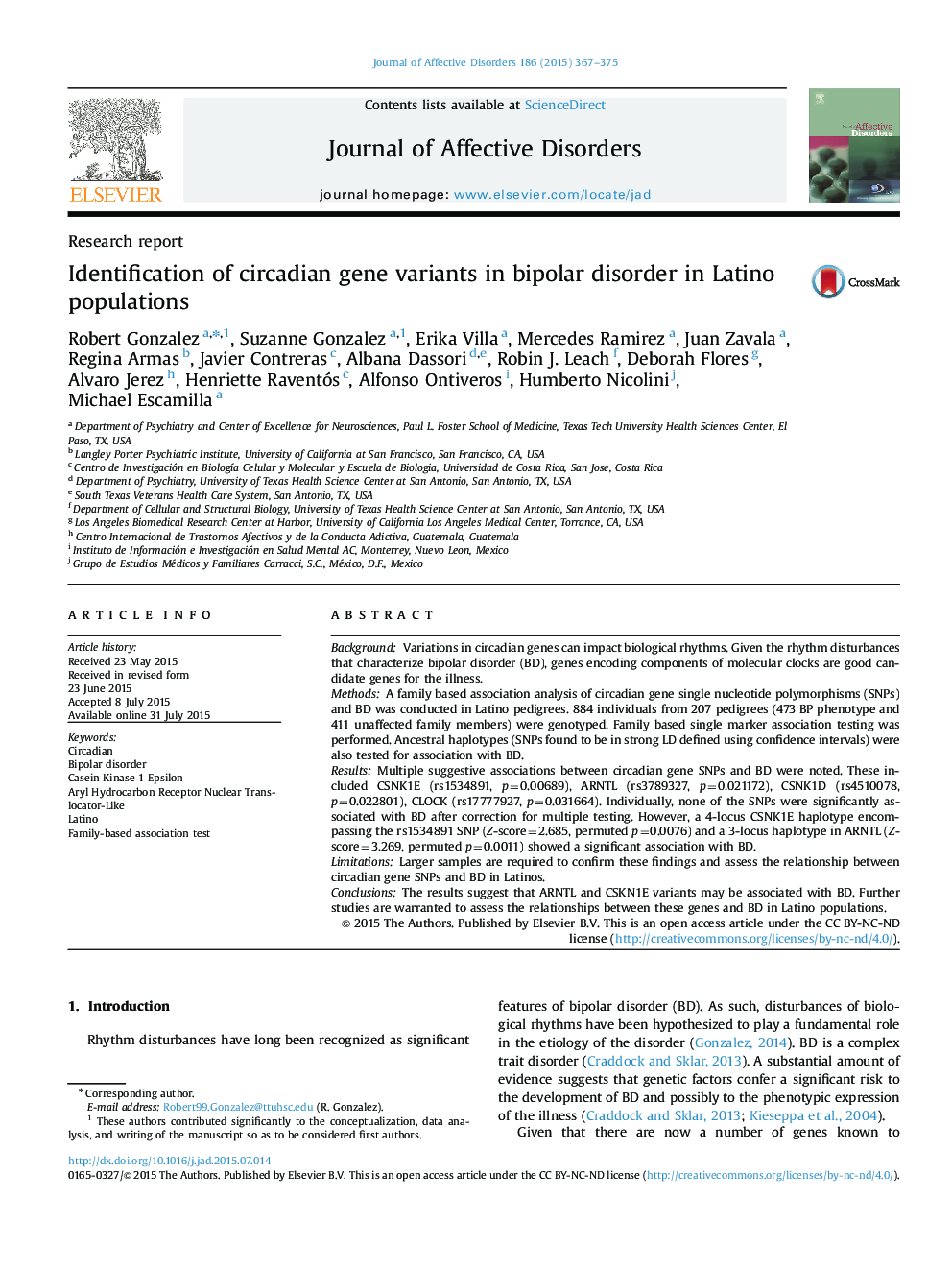| کد مقاله | کد نشریه | سال انتشار | مقاله انگلیسی | نسخه تمام متن |
|---|---|---|---|---|
| 6231225 | 1608139 | 2015 | 9 صفحه PDF | دانلود رایگان |
- Suggestive associations between circadian gene SNPs and BD were noted.
- A 4-locus CSNK1E haplotype showed a significant association with BD.
- A 3-locus ARNTL haplotype showed a significant association with BD.
- Larger samples are required to assess these findings.
BackgroundVariations in circadian genes can impact biological rhythms. Given the rhythm disturbances that characterize bipolar disorder (BD), genes encoding components of molecular clocks are good candidate genes for the illness.MethodsA family based association analysis of circadian gene single nucleotide polymorphisms (SNPs) and BD was conducted in Latino pedigrees. 884 individuals from 207 pedigrees (473Â BP phenotype and 411 unaffected family members) were genotyped. Family based single marker association testing was performed. Ancestral haplotypes (SNPs found to be in strong LD defined using confidence intervals) were also tested for association with BD.ResultsMultiple suggestive associations between circadian gene SNPs and BD were noted. These included CSNK1E (rs1534891, p=0.00689), ARNTL (rs3789327, p=0.021172), CSNK1D (rs4510078, p=0.022801), CLOCK (rs17777927, p=0.031664). Individually, none of the SNPs were significantly associated with BD after correction for multiple testing. However, a 4-locus CSNK1E haplotype encompassing the rs1534891 SNP (Z-score=2.685, permuted p=0.0076) and a 3-locus haplotype in ARNTL (Z-score=3.269, permuted p=0.0011) showed a significant association with BD.LimitationsLarger samples are required to confirm these findings and assess the relationship between circadian gene SNPs and BD in Latinos.ConclusionsThe results suggest that ARNTL and CSKN1E variants may be associated with BD. Further studies are warranted to assess the relationships between these genes and BD in Latino populations.
Journal: Journal of Affective Disorders - Volume 186, 1 November 2015, Pages 367-375
